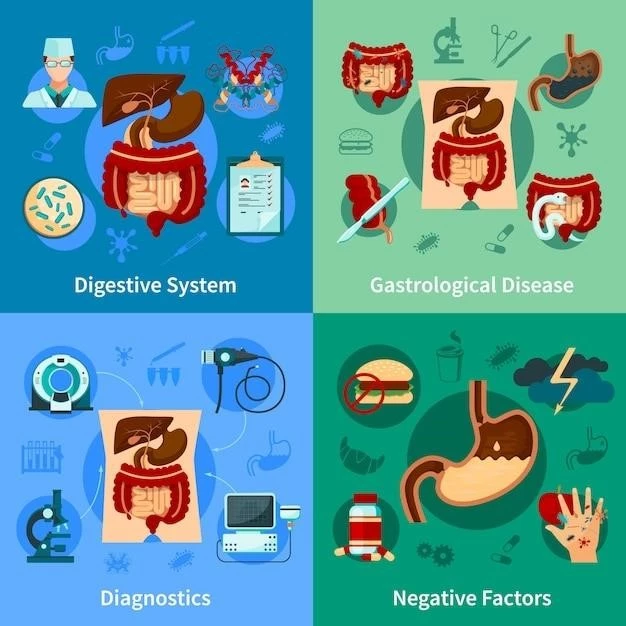Gastrointestinal Neoplasm
Introduction
Gastrointestinal neoplasms refer to abnormal cell growth in the digestive system, including the stomach, intestines, and colon. These malignancies can be life-threatening if not diagnosed and treated promptly. Understanding the risk factors, symptoms, diagnosis methods, treatment options, prevention strategies, and potential implications of metastasis is crucial in managing this disease effectively. This article aims to provide a comprehensive overview of gastrointestinal neoplasms, empowering individuals with vital information to navigate through diagnosis, treatment, and beyond.
Understanding Gastrointestinal Neoplasm
Gastrointestinal neoplasm is a term used to describe abnormal cell growth in the digestive system. This can lead to the development of tumors, specifically carcinomas, in organs such as the stomach, intestine, and colon. These malignancies require prompt diagnosis and treatment to prevent further complications. Understanding the nature of gastrointestinal neoplasms, including their types, progression, and impact on the body, is essential for both patients and healthcare providers. By delving into the intricacies of this disease, individuals can make informed decisions regarding their care and management.
Definition and Types
Gastrointestinal neoplasms encompass a range of abnormal cell growths within the digestive system, leading to the formation of tumors. The main types include adenocarcinomas, sarcomas, and carcinoid tumors. Adenocarcinomas, the most common, originate in the glandular cells of the gastrointestinal tract. Sarcomas arise in the connective tissues, while carcinoid tumors develop in the hormone-producing cells of the digestive system. Understanding the different types of gastrointestinal neoplasms is crucial in determining appropriate diagnostic and treatment approaches tailored to each specific subtype.
Risk Factors
Several factors can increase the risk of developing gastrointestinal neoplasms, including age, a family history of gastrointestinal cancers, inflammatory conditions like Crohn’s disease, a diet high in processed meats and low in fruits and vegetables, obesity, smoking, heavy alcohol consumption, and genetic syndromes like Lynch syndrome. Understanding these risk factors is essential as it aids in early identification and proactive management of individuals at higher risk. Implementing lifestyle modifications and undergoing regular screenings can help mitigate the impact of these risk factors on gastrointestinal neoplasm development.
Symptoms
Gastrointestinal neoplasms present a variety of symptoms, including unexplained weight loss, abdominal pain or discomfort, changes in bowel habits, blood in stool, fatigue, nausea, vomiting, and difficulty swallowing. However, some patients may experience no symptoms in the early stages. Recognizing these signs is crucial for early detection and prompt intervention. Individuals experiencing persistent or concerning symptoms should seek medical evaluation to determine the underlying cause and initiate appropriate diagnostic processes for timely diagnosis and treatment.
Diagnosis of Gastrointestinal Neoplasm
Accurate diagnosis of gastrointestinal neoplasms involves a combination of screening methods such as colonoscopies, endoscopies, imaging tests like CT scans and MRIs, and biopsy analysis. These diagnostic approaches help identify the presence of tumors, determine their type, size, and location within the gastrointestinal tract. Timely and precise diagnosis is pivotal in planning an effective treatment strategy. Healthcare providers analyze the results of various diagnostic tests to confirm the presence of neoplasms, assess the extent of the disease, and establish a comprehensive care plan tailored to each patient’s specific condition.
Screening Methods
Screening for gastrointestinal neoplasms typically involves procedures like colonoscopy, flexible sigmoidoscopy, fecal occult blood tests, and imaging studies. Colonoscopy is the gold standard for detecting colorectal neoplasms by visualizing the colon and rectum. Flexible sigmoidoscopy examines the lower part of the colon. Fecal occult blood tests detect microscopic blood in the stool. Imaging studies like CT scans and MRIs provide detailed images of the gastrointestinal tract, aiding in early detection. Screening allows for the identification of neoplasms at an early, more treatable stage, improving patient outcomes and prognosis.
Prognosis
The prognosis of gastrointestinal neoplasms varies depending on factors like the stage of the disease at diagnosis, the type of neoplasm, and the individual’s overall health. Early detection through screening and timely intervention significantly improves prognosis. Treatment response, the presence of metastasis, and the patient’s response to therapies also impact prognosis. Overall, a multidisciplinary approach involving surgery, chemotherapy, and radiation therapy can enhance outcomes. Regular follow-up care and monitoring are essential to track progress, manage potential recurrences, and optimize the long-term prognosis for individuals with gastrointestinal neoplasms.
Treatment Options
Treatment for gastrointestinal neoplasms often involves a combination of approaches tailored to the individual’s specific condition. Surgical intervention aims to remove localized tumors and affected tissues, promoting the best chance for cure. Chemotherapy utilizes medications to target and destroy cancer cells throughout the body. Radiation therapy employs high-energy beams to target and shrink tumors. These treatment modalities may be used alone or in conjunction, depending on the neoplasm’s type, stage, and spread. The selection of the most appropriate treatment regimen is determined by a multidisciplinary team of healthcare professionals to ensure the best possible outcome for the patient.
Surgery
Surgery plays a crucial role in the treatment of gastrointestinal neoplasms by physically removing cancerous tumors and surrounding tissues. The type of surgery required depends on factors such as the location, size, and stage of the neoplasm. Procedures may include minimally invasive techniques like laparoscopy or more extensive surgeries like colectomy for colon cancer. Surgical resection aims to achieve complete removal of the tumor while preserving organ function whenever possible. Skilled surgeons work meticulously to ensure optimal outcomes, reduce the risk of recurrence, and improve the patient’s overall quality of life postoperatively.
Chemotherapy
Chemotherapy is a systemic treatment option for gastrointestinal neoplasms involving the use of powerful medications to target and destroy cancer cells. It may be administered orally or intravenously based on the specific neoplasm type and stage. Chemotherapy aims to shrink tumors, prevent their spread, and eradicate cancer cells that cannot be removed surgically. This treatment is often utilized in combination with surgery or radiation therapy to maximize effectiveness. Although it may cause side effects, medical teams closely monitor patients throughout the treatment process to manage symptoms and ensure the best possible therapeutic outcome.
Radiation Therapy
Radiation therapy is a vital component of treatment for gastrointestinal neoplasms, utilizing high-energy rays to target and destroy cancer cells. It is often employed before or after surgery and alongside chemotherapy to enhance the effectiveness of treatment. External beam radiation delivers precise doses of radiation to the tumor site, while internal radiation (brachytherapy) involves placing radioactive materials directly into or near the tumor. Radiation therapy aims to shrink tumors, alleviate symptoms, and reduce the risk of recurrence. Multidisciplinary healthcare teams collaborate to tailor radiation therapy protocols to each patient’s specific neoplasm, optimizing treatment outcomes and enhancing quality of life.

Prevention Strategies
Preventing gastrointestinal neoplasms involves adopting healthy lifestyle practices and undergoing regular screenings. Strategies include maintaining a balanced diet rich in fruits, vegetables, and fiber while limiting processed meats and alcohol consumption. Quitting smoking, staying physically active, and managing weight can reduce the risk of developing neoplasms. Additionally, individuals with a family history of gastrointestinal cancers or genetic syndromes should undergo genetic counseling and screening as recommended. Early detection through routine screenings allows for the identification of neoplasms at an early stage when treatment can be most effective, emphasizing the importance of preventive measures in reducing the burden of this disease.
Metastasis and its Implications
Metastasis, the spread of gastrointestinal neoplasms to distant organs, significantly impacts the prognosis and treatment approach. Cancer cells can break away from the primary tumor, travel through the bloodstream or lymphatic system, and form new tumors in other parts of the body. Metastatic neoplasms are often more challenging to treat and may require a combination of surgery, chemotherapy, and radiation therapy. Detecting metastases early through imaging studies is crucial for determining the extent of the disease and devising a comprehensive treatment plan. Understanding the implications of metastasis underscores the importance of vigilant monitoring and aggressive management to improve patient outcomes.
Conclusion
In conclusion, gastrointestinal neoplasms pose a significant health challenge, necessitating a multifaceted approach encompassing prevention, early diagnosis, and tailored treatment modalities. Understanding the risk factors, symptoms, and diagnostic methods plays a crucial role in timely intervention and improved outcomes. Treatment options such as surgery, chemotherapy, and radiation therapy, along with preventive strategies, offer hope in managing and combating this disease. By emphasizing the importance of screenings, lifestyle modifications, and comprehensive care, individuals and healthcare professionals can work collaboratively to enhance patient well-being and address the complexities of gastrointestinal neoplasms effectively.
